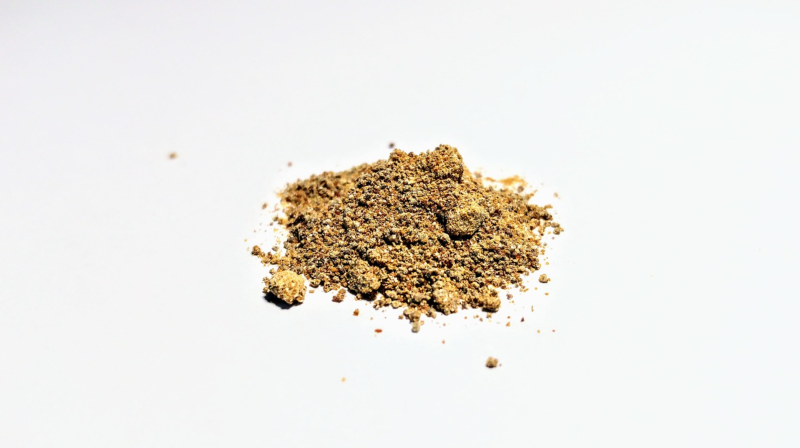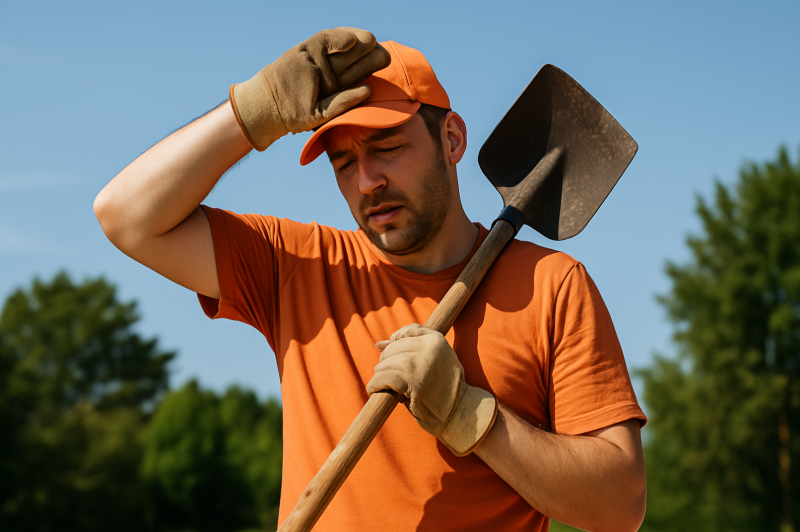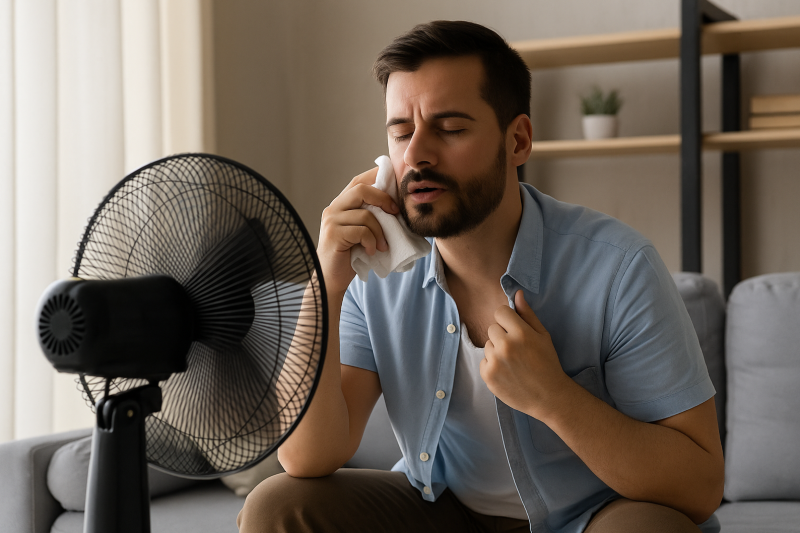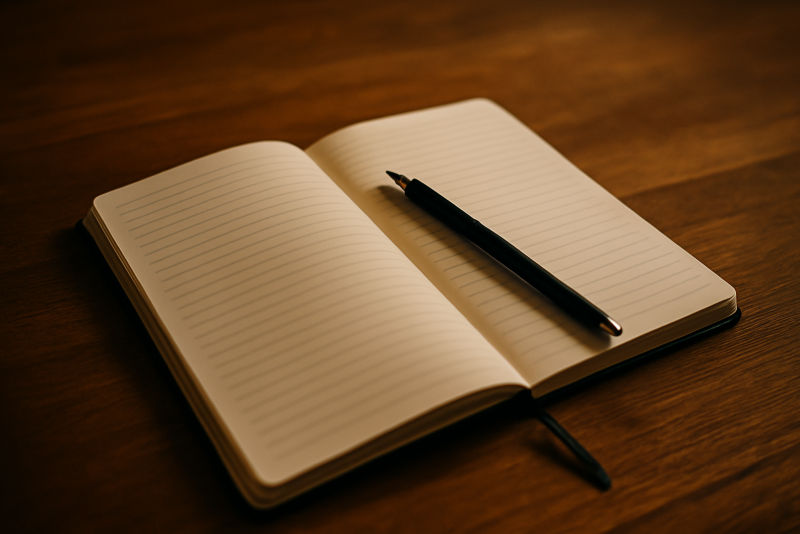
Working outside in the heat can take a toll on your body and mind. Learn how to stay safe, hydrated, and cool when temperatures rise.
By Sergio Toledo
Editor-in-Chief, Heed to Heal
Introduction
Working outdoors during the summer can be intense. For many, it’s not a choice — it’s the job. Whether you’re cleaning pools, building homes, delivering goods, or maintaining landscapes, being under the sun for hours at a time comes with serious risks to your body and mind.
The summer heat isn’t just uncomfortable — it can be dangerous. Prolonged exposure can lead to dehydration, exhaustion, heat stroke, and even long-term health complications if not managed carefully. The good news is that there are smart, practical ways to protect yourself and stay resilient through the hottest months.
How Heat Affects the Body
The human body regulates temperature through sweating. But when it’s extremely hot or humid, sweat doesn’t evaporate as efficiently, making it harder to cool down. As your body heats up, blood flow increases to the skin — which can strain your heart, kidneys, and brain.
Common symptoms of heat-related illness include:
- Dizziness or lightheadedness
- Rapid heartbeat
- Nausea or vomiting
- Muscle cramps
- Confusion or slurred speech
- Fainting
Ignoring these early signs can lead to heat exhaustion or even heat stroke, a medical emergency.
Practical Ways to Stay Safe
1. Hydrate Constantly — Even Before You’re Thirsty
Drink water before, during, and after your shift. A general rule: about 1 cup (8 oz) every 15–20 minutes in the heat. Avoid caffeine, alcohol, or sugary drinks — they can dehydrate you faster.
2. Take Frequent Cool-Down Breaks
Use shade, air-conditioned vehicles, or cold washcloths on your neck and wrists. Regular rest is key to keeping your core temperature down — especially during peak heat (12–4 PM).
3. Dress Smart
Wear loose, lightweight, and light-colored clothing. A wide-brimmed hat and UV-protective sunglasses can also reduce sun strain.
4. Use a Cooling Cloth or Fan
Portable fans, neck coolers, or even a wet towel can help your body release excess heat. Keep these handy, especially on long routes or jobs with limited shade.
5. Eat Light
Heavy meals increase body temperature. Opt for cold or room-temperature foods that hydrate, like fruits, vegetables, smoothies, or cold sandwiches.
The Mental Strain of Working in the Heat
Working outside in extreme heat doesn’t just exhaust your body — it can wear down your emotional and mental well-being too. High temperatures can increase irritability, reduce concentration, and cause mental fatigue.
If you’re starting to feel more anxious, short-tempered, or emotionally worn out after long, hot days — it’s not in your head. It’s your nervous system telling you it needs rest.
Try this: After your shift, take a cold shower, sit in a dark or cool space, and let your body fully reset before tackling anything else.
Know When to Stop
It’s not weakness to stop and cool down — it’s strength. Some signs that you should immediately stop working and seek help:
- Nausea or chills
- Confusion or difficulty speaking
- Hot, dry skin (not sweating)
- Rapid breathing
- Feeling faint or collapsing
If this happens to you or someone else, get to shade, cool the body fast, and call for medical help if symptoms don’t ease quickly.
Final Thoughts
There’s no shame in taking care of your body when you work outside. The heat is a real challenge, and the risks are real — but so are the ways to protect yourself.
Whether you’ve done this job for years or are just starting out, you deserve to feel strong, focused, and safe in your work. That means listening to your body, staying cool when you need to, and giving yourself credit for showing up in tough conditions.
References
- CDC. (2023). Heat Stress – National Institute for Occupational Safety and Health
- OSHA. (2022). Water. Rest. Shade. Campaign – U.S. Department of Labor
- American Heart Association. (2020). Hot weather and your heart
- Harvard Health. (2021). How heat affects your body — and how to protect it
Originally published by Heed to Heal, 06.30.2025, under the terms of a Creative Commons Attribution-NonCommercial-NoDerivatives 4.0 International license.







